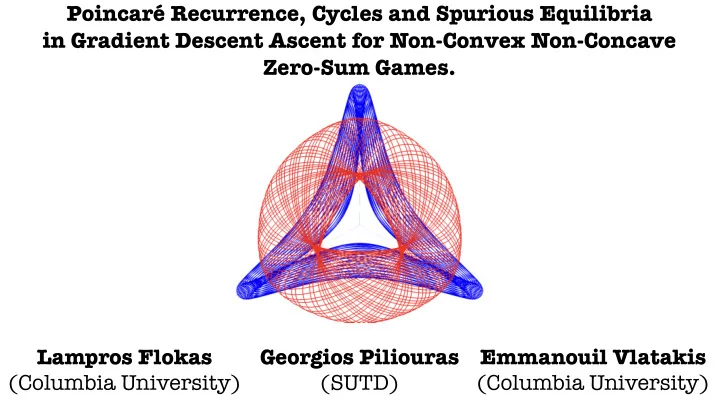

Poincaré Recurrence, Cycles and Spurious Equilibria in Gradient Descent Ascent for Non-Convex Non-Concave Zero-Sum Games. Lampros Flokas Georgios Piliouras Emmanouil Vlatakis (Columbia University) (SUTD) (Columbia University)
Our work This is the first theoretical paper that analyzes vanilla GDA in non-convex non-concave zero-sum games: Takeaways: GDA does not solve always zero-sum games i) ii) Many distinct failure modes provably exist including cycles and spurious equilibria . iii) To understand these settings we need physics + non-convex optimization combined.
Motivation i) Generative Adversarial Networks ii) Adversarial Learning iii)Multi-agent Reinforcement learning
Prior work: Bilinear Games Zero Sum Game Example:
This work: Hidden Bilinear Games Hidden Zero Sum Game ❖ This is a well-defined problem. ❖ The hidden structure identifies the correct equilibrium that is also meaningful . ❖ It is clear that the min/max solution does not depend on the operator . ❖ GDA corresponds to the indirect competition of players in the parameter level .
Our Results GDA results in a variety of behaviors antithetical to convergence Convergence to spurious equilibria corresponding to i) stationary points of the operators F and G. ii) Cycling behavior around the equilibrium for continuous time GDA. iii) Divergence from equilibrium fo discrete time GDA.
Our Techniques ❖ Poincaré Recurrence Theorem ❖ Energy conservation ❖ Stable-Center Manifold Theorem ... and many more
Come to our poster Wed 5pm #C220 To hear more Thank you
Recommend
More recommend